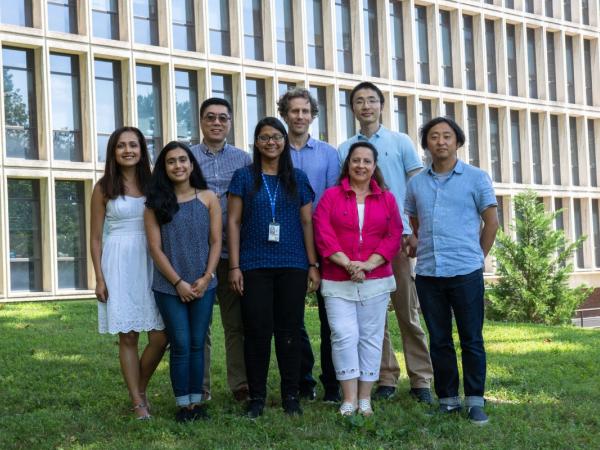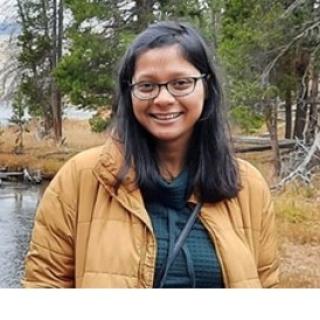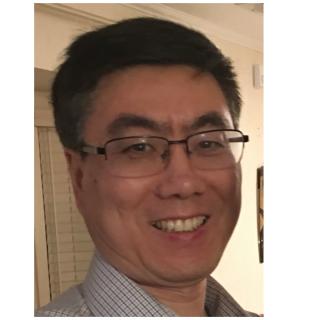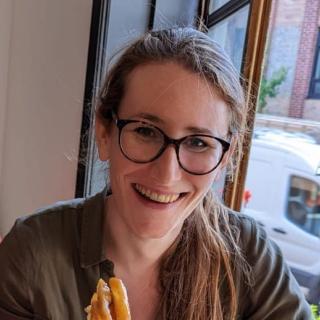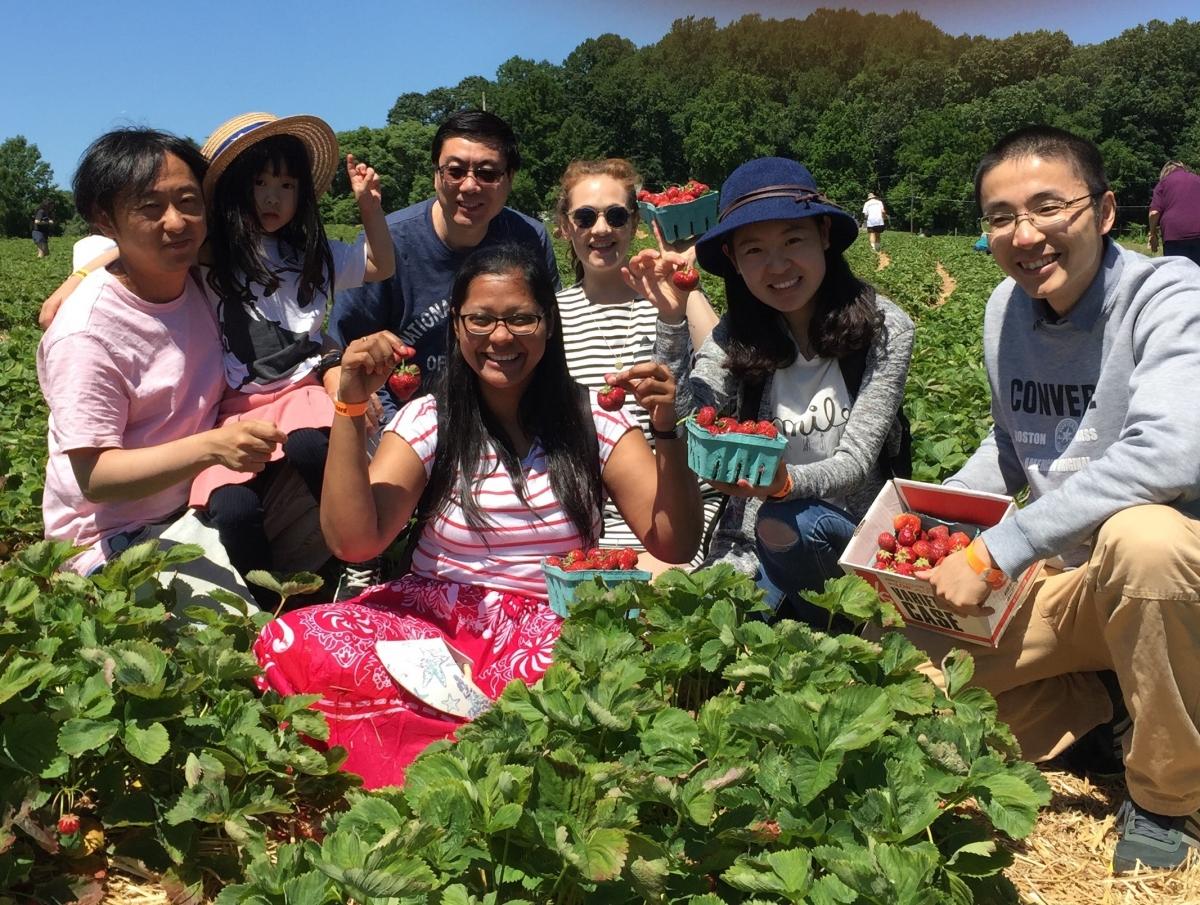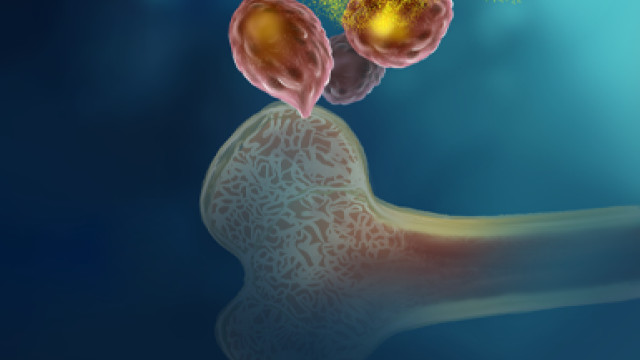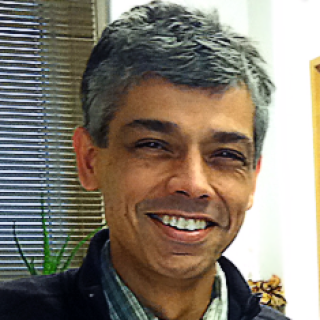
Avinash Bhandoola, M.B., B.S., Ph.D.
- Center for Cancer Research
- National Cancer Institute
- Building 37, Room 1108
- Bethesda, MD 20892-4254
- 240-760-7592
- 240-541-4489
- avinash.bhandoola@nih.gov
RESEARCH SUMMARY
We study the development and function of lymphocytes, that play essential roles in immune responses. My laboratory has long studied the development of T cells and innate lymphoid cells (ILCs). Our interests have extended to the thymic epithelial cells (TEC) that sustain T cell development, and whether their declining function with age impacts T cell immunity in the elderly and in cancer patients. We also unexpectedly discovered microenvironmental factors that influence antibody responses. Specifically, we found that the purinergic receptor P2RX4 and the channel protein Pannexin-3 together constitute an essential and defining feature of the bone marrow survival niche for long-lived antibody-secreting plasma cells. Our future studies will continue to focus on lymphocytes (T cells, ILCs, and plasma cells) and the intrinsic and extrinsic factors that regulate their development and function.
Areas of Expertise

Avinash Bhandoola, M.B., B.S., Ph.D.
Research
Past Contributions
My laboratory identified cells capable of migrating from the bone marrow to the thymus, and characterized the mechanisms used by these cells to settle in the adult mouse thymus (Schwarz and Bhandoola, Nat. Immunol., 2004; Zlotoff, et al., Blood, 2010; Zlotoff, Zhang, et al., Blood, 2011; Sultana, et al., J. Immunol., 2012; Zhang, et al., Blood 2014). We studied the intrathymic mechanisms by which Notch signaling imprinted T cell identity on precursors that settled the thymus, and we identified critical roles in this process for transcription factor TCF-1 (Allman et al., Nat. Immunol., 2003; Sambandam, et al., Nat. Immunol., 2005; Bell and Bhandoola, Nature, 2008; Weber, Chi, et al., Nature, 2011; De Obaldia, et al., Blood, 2013; De Obaldia, et al., Nat. Immunol., 2013). Subsequently, we showed that TCF-1 was essential in the bone marrow for the development of innate lymphocytes, indicating that the same transcription factor is used in the construction of adaptive T cells as well as innate lymphocytes (Yang, et al., Immunity, 2013). We identified and characterized rare TCF-1 expressing precursors of ILCs in adult mouse bone marrow, that we termed early innate lymphoid progenitors (EILP). We showed that EILP are efficient precursors of all adult innate lymphocytes but lack lineage potential for adaptive lymphocytes (Yang et al., Nat. Immunol., 2015). We showed TCF-1 mediates commitment to the ILC lineage, and we worked with Keji Zhao (NHLBI) to determine the gene regulatory program controlled by Tcf1 in EILP (Harly et al., JEM, 2018; Harly et al., Nat. Immunol., 2019). We studied mechanisms controlling growth and involution of the thymus organ, and we revealed a critical role for transcription factor and proto-oncogene Myc in TEC for controlling thymus organ size (Cowan et al., Nat. Comm., 2019).
Development and function of Innate Lymphoid Cells (ILCs)
Natural Killer Cells: Natural Killer (NK) cells are heterogeneous. We found that this heterogeneity is at least in part established as NK cell develop. Specifically, we identified parallel developmental pathways that give rise to two types of NK cells: a major pathway that develops from Early NK progenitors (ENKP) that we described, and a minor pathway that develops from previously-described ILCP (Ding at al., Nat. Immunol., 2024). These two types of NK cells are functionally distinct. Further, we showed that the transcriptional and functional distinctions between these two subsets are likely to be conserved in humans. We collaborated with the metaNK consortium to show that the transcriptional signatures we’d identified and mapped onto human NK cells were also evident in their larger analysis of human NK populations. Our insights therefore contribute to the new classification of human NK cells proposed by our colleagues (Rebuffet et al., Nat. Immunol., 2024).
Group 3 ILC: ILC3 in the gut highly express the transcription factor Tox2. We generated mice with germline as well as conditionally mutated alleles of Tox2, and we showed that Tox2-deficient mice selectively lack ILC3 in the gut. We found Tox2 was upregulated by IL-17 signaling, as well as hypoxia, and in turn upregulated expression of Hexokinase-2, a limiting enzyme for glycolysis (Das et al., Immunity, 2024). Thus, Tox2 controls the metabolic adaptation necessary for ILC3 function and survival in the gut.
Thymic epithelial cells
We showed that mice lacking the transcription factor Klf6 in thymic epithelial cells (TEC) have greatly reduced numbers of medullary TEC (mTEC), specifically the subset expressing the chemokine CCL21 (Malin et al., Sci. Adv, 2023). These mice have autoimmune phenotypes, with immune infiltrates in organs such as salivary glands but also increased titers of anti-dsDNA autoantibodies.
Pannexin-3 and P2RX4 in the bone marrow plasma cell niche
We serendipitously discovered that Pannexin-3 (PANX3) and P2RX4 together are essential to establish the bone marrow niche for plasma cells in mice, and worked with David Allman at the University of Pennsylvania to determine that targeting plasma cells was useful in mouse models of autoimmunity (Ishikawa et al., Nature, 2024). As drugs targeting P2RX4 exist, the results provide new approaches to understanding the unique biology and function of bone marrow plasma cells, and new approaches to targeting problematic plasma cells in autoimmunity, antibody-mediate transplant rejection, and multiple myeloma.
Current research
Our current work focuses on three broad Research Areas that build on our past accomplishments.
Research Area 1:
We are continuing our efforts to understand the mechanisms by which ILC and T cells diverge developmentally and functionally. Our ongoing work indicates that the mechanisms that upregulate TCF-1 in the bone marrow are distinct from those controlling Tcf1 expression in intrathymic T cell precursors. Further, we wish to understand the acquisition of tissue-specific functions in ILCs. More specifically, we wish to investigate the role of the transcription factor Tox2 in controlling effector function in gut-resident ILC3 and in lung ILC2.
Research Area 2:
We are furthering our studies to understand the mechanisms that control thymic size and output, and to establish the consequences of thymic involution for adaptive T cell responses. More broadly, our goal is to identify progenitors that support the maintenance of the thymus organ, characterize different epithelial cell types in this organ, and identify the transcriptional controllers that maintain thymus function by acting in these distinct cells. We have established experimental systems that allow thymic regrowth after involution, and we wish to use these systems to understand if thymic regeneration can reverse age-related immune defects. To better understand the mechanisms by which the adult thymus is maintained, we have created Foxn1Cre-ERT2; Rosa-reporter mice that allow the activity of progenitors for thymic epithelial cells to be studied.
Research Area 3:
We are following up on our collaborative studies with David Allman at Penn establishing that bone marrow, but not splenic, plasma cells use P2RX4 to sense extracellular ATP and consequently promote ER homeostasis and avoid apoptosis. In addition to investigating alternative niche factors supporting splenic plasma cells, we will extend our studies to plasma cells localized in numerous other sites. We will assess the biochemical pathways controlled by P2RX4 in bone marrow plasma cells, and we will develop mechanistic comparisons with splenic plasma cells. We will also determine if myeloma cells from mice and humans remain sensitive to P2RX4 inhibition.
The Bhandoola Lab, July 2019
Publications
- Bibliography Link
- View Dr. Bhandoola's PubMed Summary.
Transcription factor Tox2 is required for metabolic adaptation and tissue residency of ILC3 in the gut
Bone marrow plasma cells require P2RX4 to sense extracellular ATP
Distinct developmental pathways generate functionally distinct populations of natural killer cells
Expression of the transcription factor Klf6 by thymic epithelial cells is required for thymus development
Myc controls a distinct transcriptional program in fetal thymic epithelial cells that determines thymus growth
Biography
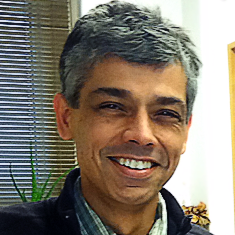
Avinash Bhandoola, M.B., B.S., Ph.D.
Avinash Bhandoola received a Ph.D. from the University of Pennsylvania in 1994, mentored by Mark Greene and focused on T cell tolerance. He did a postdoctoral fellowship with Dr. Alfred Singer at NCI, focused on T cell development. He joined the faculty of the University of Pennsylvania in 2001, received tenure in 2007, and was promoted to full professor in 2012. He subsequently joined the Laboratory of Genome Integrity in 2014.
Job Vacancies
We have no open positions in our group at this time, please check back later.
To see all available positions at CCR, take a look at our Careers page. You can also subscribe to receive CCR's latest job and training opportunities in your inbox.
Team
Lab Life
Strawberry Picking - Bhandoola Lab, June 2019
